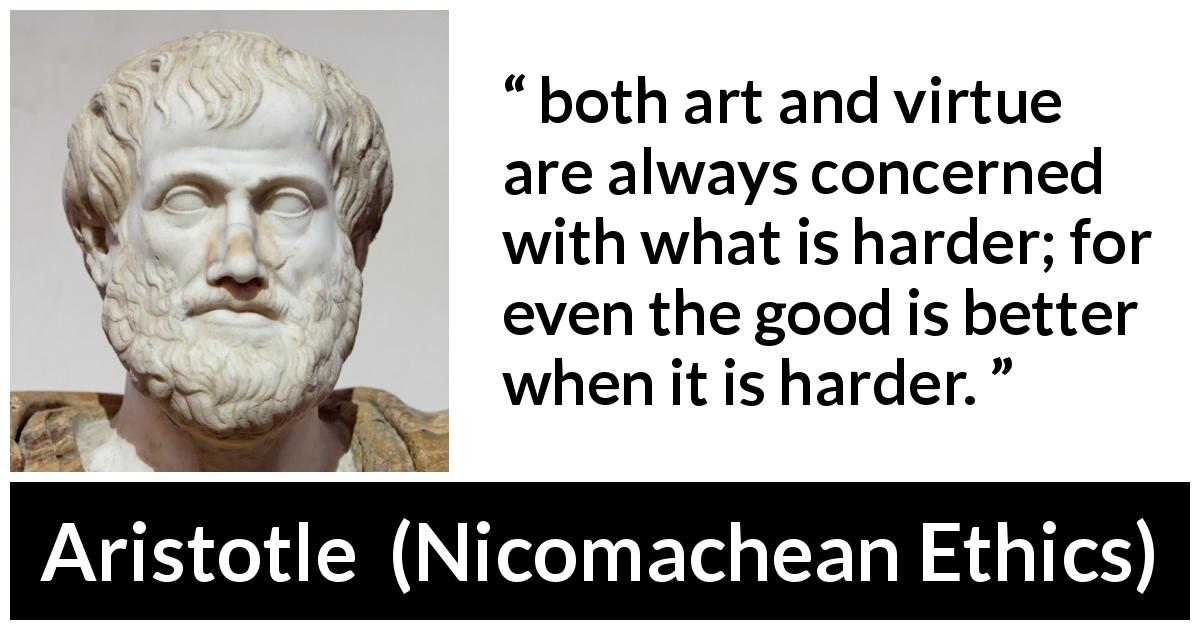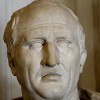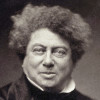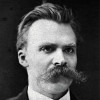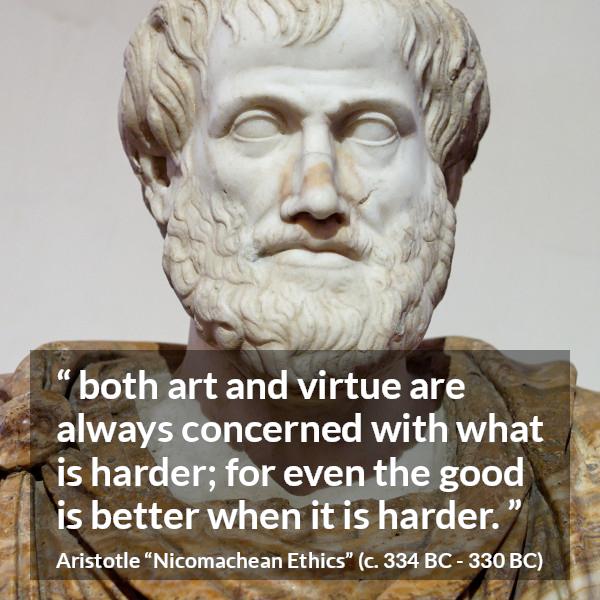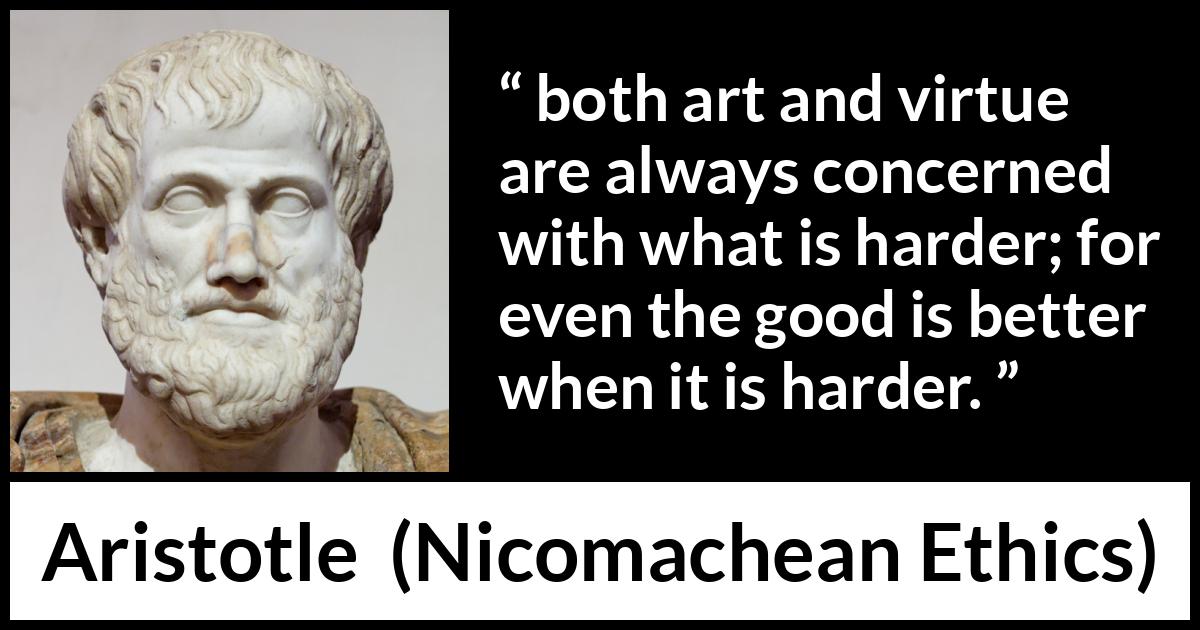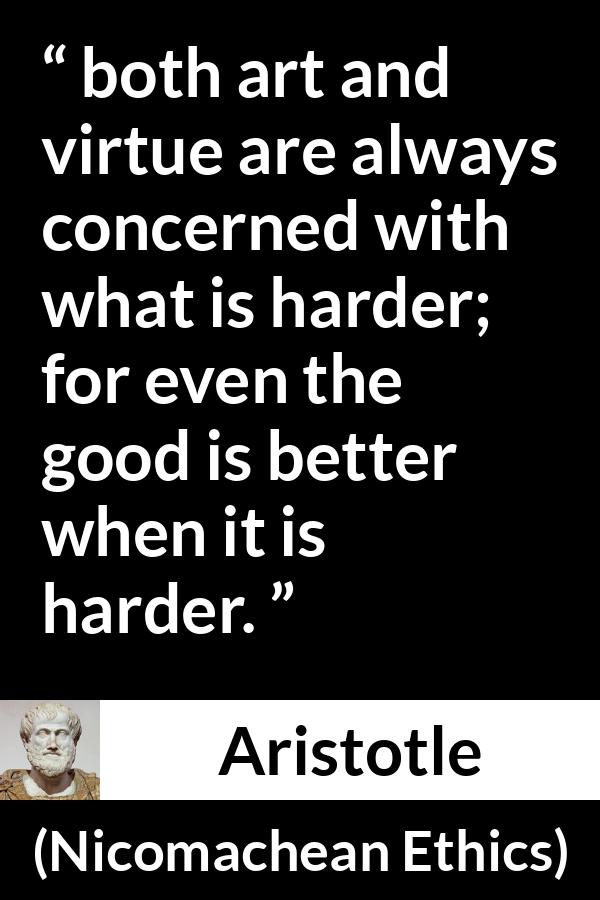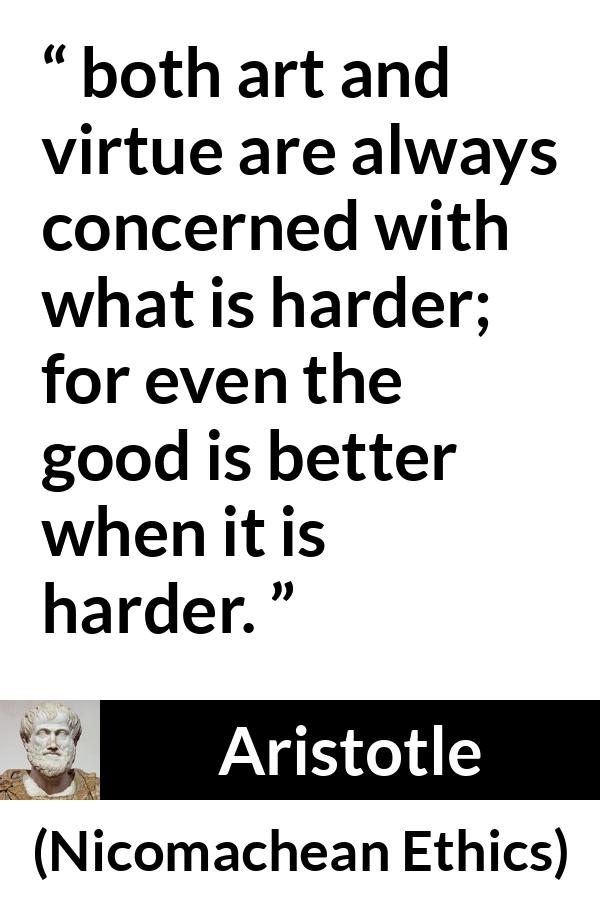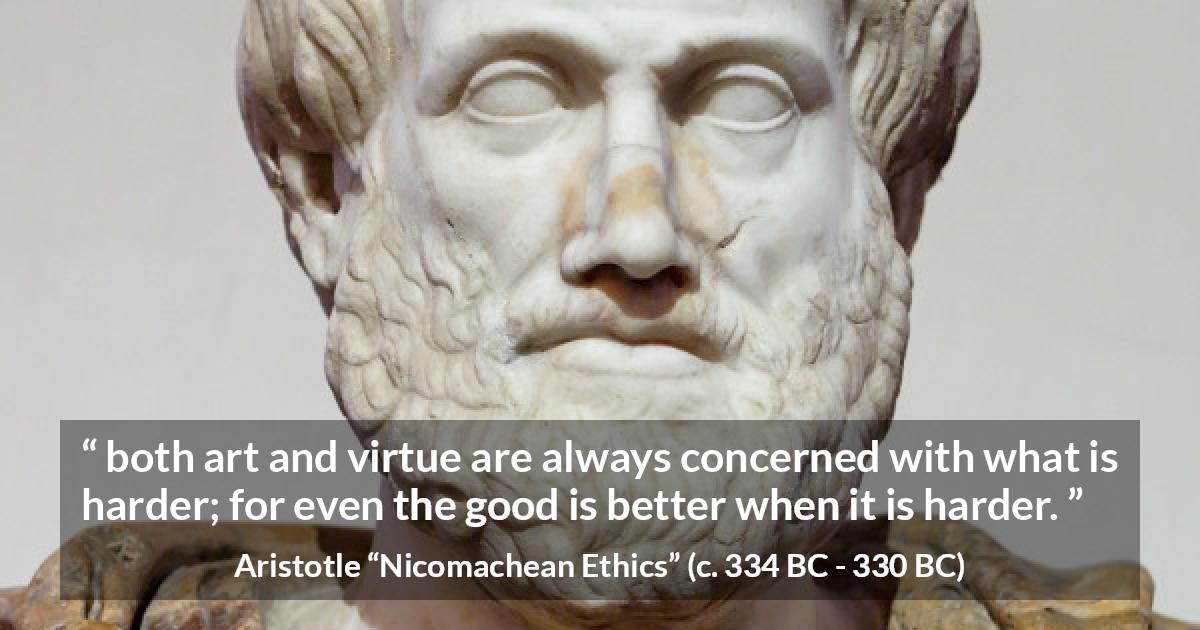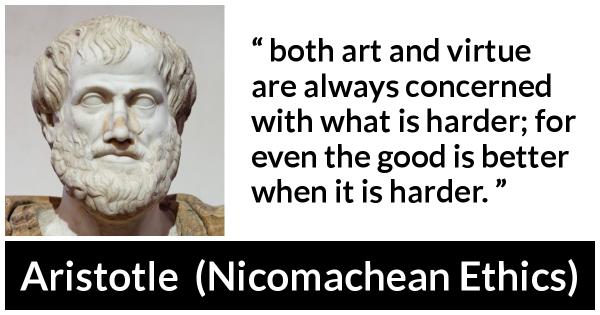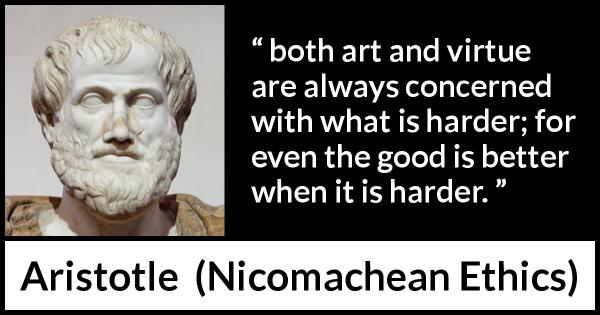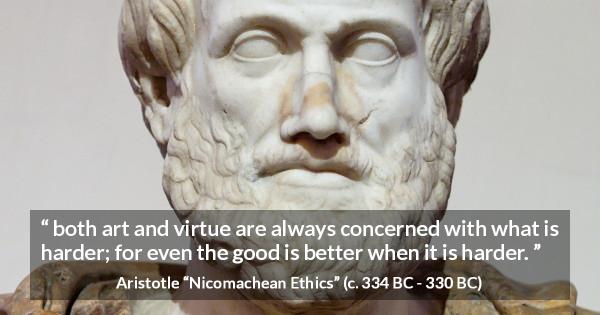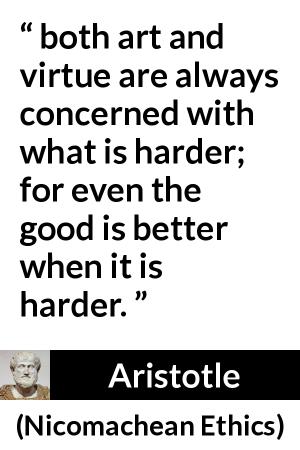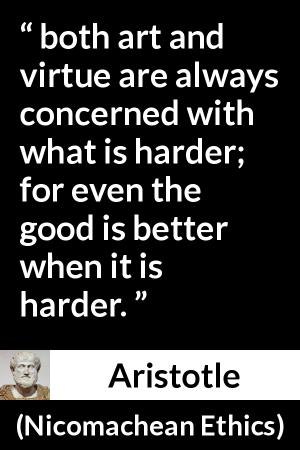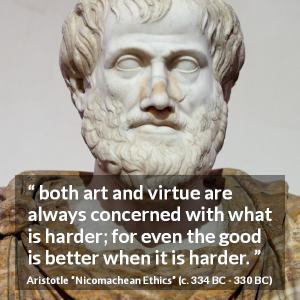“ both art and virtue are always concerned with what is harder; for even the good is better when it is harder. ”
Aristotle, Nicomachean Ethics (c. 334 BC - 330 BC). copy citation
| Author | Aristotle |
|---|---|
| Source | Nicomachean Ethics |
| Topic | good hardship |
| Date | c. 334 BC - 330 BC |
| Language | English |
| Reference | |
| Note | Translated by W. D. Ross |
| Weblink | http://classics.mit.edu/Aristotle/nicomachaen.mb.txt |
Context
“And we measure even our actions, some of us more and others less, by the rule of pleasure and pain. For this reason, then, our whole inquiry must be about these; for to feel delight and pain rightly or wrongly has no small effect on our actions.
Again, it is harder to fight with pleasure than with anger, to use Heraclitus' phrase', but both art and virtue are always concerned with what is harder; for even the good is better when it is harder. Therefore for this reason also the whole concern both of virtue and of political science is with pleasures and pains; for the man who uses these well will be good, he who uses them badly bad.
That virtue, then, is concerned with pleasures and pains, and that by the acts from which it arises it is both increased and, if they are done differently, destroyed, and that the acts from which it arose are those in which it actualizes itself- let this be taken as said.” source
Again, it is harder to fight with pleasure than with anger, to use Heraclitus' phrase', but both art and virtue are always concerned with what is harder; for even the good is better when it is harder. Therefore for this reason also the whole concern both of virtue and of political science is with pleasures and pains; for the man who uses these well will be good, he who uses them badly bad.
That virtue, then, is concerned with pleasures and pains, and that by the acts from which it arises it is both increased and, if they are done differently, destroyed, and that the acts from which it arose are those in which it actualizes itself- let this be taken as said.” source
